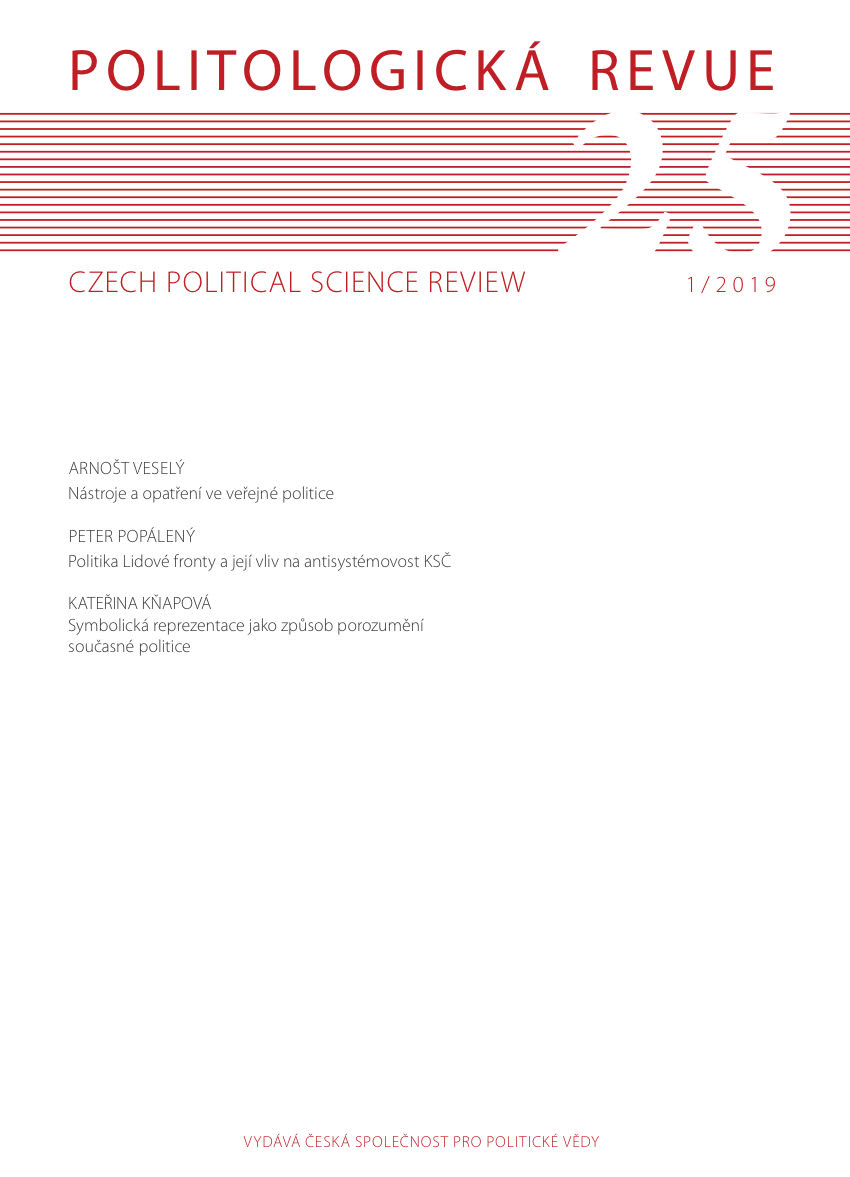Politika Lidové fronty a její vliv na antisystémovost KSČ
Politics of the People´s Front and its impact on the anti-system nature of the Communist Party of Czechoslovakia
Author(s): Peter PopálenýSubject(s): Politics / Political Sciences, Government/Political systems, History of Communism
Published by: Česká společnost pro politické vědy
Keywords: Communist Party of Czechoslovakia; anti-system party; Communist International; bolshevism; People’s Front; United Front
Summary/Abstract: This article is devoted to the Communist Party of Czechoslovakia, the influence of the concept of the People’s Front adapted within the scope of the Communist International, and its impact on the anti-systemic attitudes of Czechoslovak communists. The theoretical starting point is Sartori’s classic theory of the anti-systemic party. Within the scope of First Republic Czechoslovakia, the Communist Party of Czechoslovakia undoubtedly represented an anti-systemic party, but the attitudes and intensity of manifestations underwent a certain development. The Communist International, and its Moscow leadership had a crucial influence on the policy of Czechoslovak communists. Its individual directives and concepts fundamentally affected what happened in the party. The core policies, or more precisely starting points, included the United Front and the People’s Front. The interpretation and realization of both of these policies were accompanied by ambiguity, and often conflicting interpretations. In spite of these facts, the People’s Front meant a fundamental turnaround in many respects, but of importance was that the objective, in the form of the proletariat’s dictatorship, remained unchanged. In the 1930s, under the influence of domestic and international situations, and shielded by the policy of the People’s Front, Czechoslovak communists managed to gradually connect with a significant part of society. The reason for their success was the obscuring of anti-systemic attitudes, complemented by a populist approach, and last but not least an appeal to national sentiment. The active support for the policy of the People’s Front, and the devotion to the Communist International maintained the Moscow leadership’s favor. The future after World War II was proof of how effective such an approach was.
Journal: Politologická revue
- Issue Year: 25/2019
- Issue No: 1
- Page Range: 31-53
- Page Count: 23
- Language: Czech
- Content File-PDF

